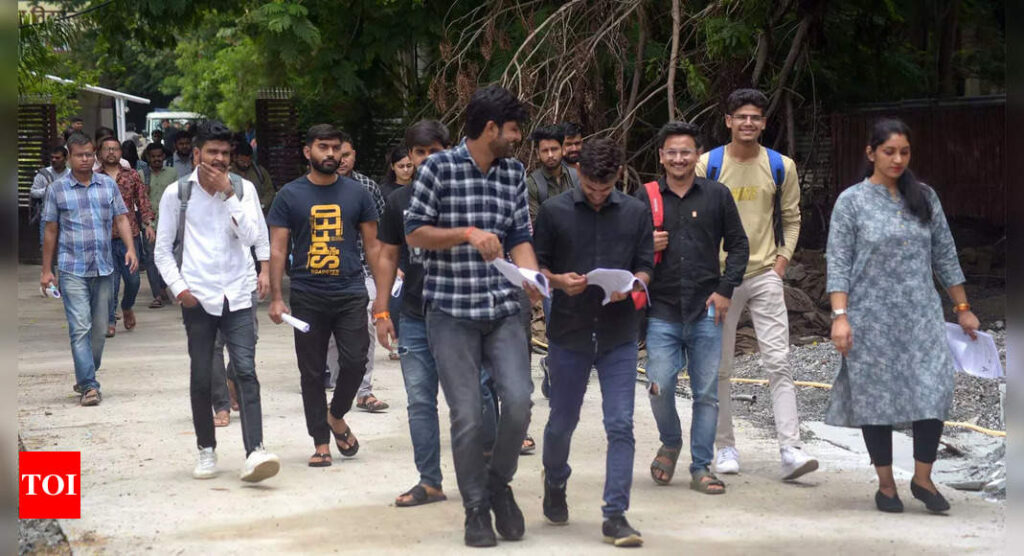The UPSC Civil Services examination stands as one of the most prestigious tests, drawing countless aspirants with dreams of joining the ranks of administrative elites. The exam paves the way to top government positions like IFS, IAS, IPS, and IRS. Yet, the daunting statistics and cutthroat competition paint a picture of the challenging path aspirants face. Only a few hundred outshine the rest, turning the exam into a test of rejection more than selection.
The unpredictable nature of the exam, especially its preliminary stage, has always perplexed entrants, lending an allure to the process. Those who do qualify face an uphill battle, where only the sky’s the limit. However, not all will see their names etched on the coveted list.
In an effort to decipher the UPSC’s complexities, some tried-and-true practices have emerged. Snehil Tripathi, an accomplished educator and author, highlights the common denominators of successful candidates:
First and foremost, thorough knowledge is essential. Concepts must be understood deeply, and crucial topics like the President and Money Bill/Finance Bill must be committed to memory. The strength of one’s foundation determines their success.
Remaining well-informed is vital. Staying up-to-date with current events, government priorities, and relevant subjects is essential. Delving deeply into topics like ‘green hydrogen’ showcases dedication.
Exceeding expectations is crucial. Aspirants must be aware of significant national and international developments that could impact the country. Discerning relevance is key.
Calmness and mental alertness in the exam hall are indispensable. Regular mock tests and test series should be a part of every serious aspirant’s routine.
Clarity is paramount. A clear understanding of concepts is essential for tackling tricky or altered questions effectively.
Selecting the right resources matters. Flexibility in sources allows a comprehensive understanding, just like the comprehensive ‘Ancient History of India’ authored by Snehil Tripathi.
Ultimately, revision is pivotal. Retention, not just consumption, of information is what truly matters.
Cracking the UPSC exam lies in adept preparation. Opting for the best resources and committing to them is the epitome of smart work. The complexity of the exam is reflected in the astute efforts of aspirants.
The unpredictable nature of the exam, especially its preliminary stage, has always perplexed entrants, lending an allure to the process. Those who do qualify face an uphill battle, where only the sky’s the limit. However, not all will see their names etched on the coveted list.
In an effort to decipher the UPSC’s complexities, some tried-and-true practices have emerged. Snehil Tripathi, an accomplished educator and author, highlights the common denominators of successful candidates:
First and foremost, thorough knowledge is essential. Concepts must be understood deeply, and crucial topics like the President and Money Bill/Finance Bill must be committed to memory. The strength of one’s foundation determines their success.
Remaining well-informed is vital. Staying up-to-date with current events, government priorities, and relevant subjects is essential. Delving deeply into topics like ‘green hydrogen’ showcases dedication.
Exceeding expectations is crucial. Aspirants must be aware of significant national and international developments that could impact the country. Discerning relevance is key.
Calmness and mental alertness in the exam hall are indispensable. Regular mock tests and test series should be a part of every serious aspirant’s routine.
Clarity is paramount. A clear understanding of concepts is essential for tackling tricky or altered questions effectively.
Selecting the right resources matters. Flexibility in sources allows a comprehensive understanding, just like the comprehensive ‘Ancient History of India’ authored by Snehil Tripathi.
Ultimately, revision is pivotal. Retention, not just consumption, of information is what truly matters.
Cracking the UPSC exam lies in adept preparation. Opting for the best resources and committing to them is the epitome of smart work. The complexity of the exam is reflected in the astute efforts of aspirants.

